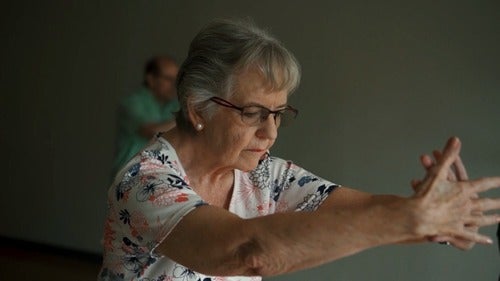Editor:
Brandon Sweet
University Communications
bulletin@uwaterloo.ca
Celebrating Black History Month at Waterloo

A message from the Ujima Black History Month planning committee.
In 1995, the House of Commons recognized February as Black History Month in Canada. During this month, many Canadians and institutions take a moment to examine the dark history of racism in Canada that was generated from slavery and the Transatlantic slave trade.
The emergence of Black History Month is attributed to Carter Woodson (1875-1950) who is known as the creator of Black History Month. As a historian and published author, Woodson was concerned that the stories of Black people and their achievements were not recognized and shared in the wider world. He dedicated his life to educating African Americans about the achievements and contributions of their ancestors. In 1926, he dedicated the second week of February to celebrating Black achievements. Within a decade the celebration of Black history had grown tremendously. While it was proposed to become an annual American celebration in 1969, it was not until 1975 that President Gerald Ford recognized February as Black History Month. Ford commented that the accomplishments of African Americans had been neglected for too long.
Today, during the month of February, people around the world celebrate incredible stories of Black people, who have made a tremendous impact in our world. In Canada, we celebrate those who have contributed to Black liberation and progress, such as Viola Desmond, Lincoln Alexander, Oscar Peterson, and George Elliott Clarke - to name a very few.
Black History Month is also a reminder that during the other eleven months of the year we must continue to learn, reflect and act on the need for a more equitable and just society where all can feel a sense of belonging and inclusivity.
“We use February to spotlight Blackness and Black history,” said Dr. Christopher Stuart Taylor, associate vice-president, of the office of Equity, Diversity, Inclusion and Anti-racism. “This year, I'm challenging us to (re)think and (re)imagine the space and place of Black people in society, our historical narrative, and the one month a year we choose to ‘celebrate’ Blackness and Black people.”
“Our goal is to celebrate Black history in the campus community and beyond, and to celebrate these histories in February and beyond. Any time is the right time for celebration and actions,” Dr. Taylor said.
“As we celebrate Black history and the many achievements and successes of Black Canadians and others, we must also reflect on what we can to build a more equitable and just society for all,” said Vivek Goel, President and Vice-Chancellor. “We must ensure that racism and oppression have no room in our workplaces or communities. Together, we must work on continuing the essential work of self-reflection and intentional anti-racism,” he said.
What can you expect from Ujima Black History Month at UWaterloo?
We’ve entitled our University’s celebration of Black History Month with the symbol Ujima. The creator and founder of Kwanzaa, Dr. Maulana Karenga, stated that Ujima, a Swahili word from South Africa, is the principle of collective work and responsibility. Ujima is also “a commitment to active and informed togetherness on matters of common interest” and represents the internalized ethos that guides one’s life for the common benefit of ourselves and our larger communities. With the goal of liberation from oppressive forces, and we want our UWaterloo community to understand that, though we might differ in strategy and process, this fundamental goal is something we can achieve together. Most importantly, Ujima recognizes that “without collective work and struggle, progress is impossible, and liberation unthinkable”.
You can expect virtual events, stories, and other initiatives by and with UWaterloo folks and guests that, echoing Karenga, speak to a collective culture and identity and highlight our shared responsibility for institutional and wider systemic change.
Learn more about UWaterloo’s Ujima Black History Month.
Research improves equal access to community supports

By Melanie Scott. This article was originally posted on Waterloo News.
A group of researchers from the University of Waterloo is providing community partners with training and resources to support people living with dementia. The research project, Dementia Resources for Eating, Activity and Meaningful Inclusion (DREAM), aims to improve knowledge and attitudes around physical activity, healthy diet and inclusive programming.
“Instead of specialized programs for people living with dementia, our resources aim to give current wellness providers, such as exercise instructors, dietitians and those who provide cultural, religious or other community programming, the ability to adapt their current services to be more inclusive,” says Laura Middleton, a Kinesiology and Health Sciences professor who leads the project.
January marks Alzheimer’s Awareness Month and according to the Alzheimer Society of Canada, over 500 thousand Canadians are currently living with dementia. That number is expected to increase to 912 thousand by 2030. Women make up 70 per cent of people affected by Alzheimer’s disease.
“People living with dementia have a right to benefit from health care and rehabilitation through exercise and support for healthy eating, and to participate in recreational and leisure activities in their communities,” says Middleton. “This is a right supported by the United Nations Convention on the Rights of Persons with Disability.”
The DREAM project is co-led by Middleton and Heather Keller, another Kinesiology and Health Sciences professor. It brings together 40 people and 15 organizations to develop and deliver training modules, pilot test and evaluate wellness programs to ensure they meet the needs and preferences of people living with dementia and their care partners. The training includes information on abilities, challenges and the rights of people living with dementia. It makes recommendations for communication, program delivery and facility design.
“Our goal is to help community wellness program providers understand dementia and how to engage people living with dementia in their programs," says Middleton. “Our resources work to de-stigmatize dementia and teach how small changes can support inclusion. It can be as simple as reducing noise or using clear communication in program delivery. Ultimately, these accommodations will benefit others in the community as well, such as those with stroke or Parkinson’s disease or those living with cognitive or learning delays.”
Funded by a Public Health Agency grant, the project has completed its first stage: the co-development of video and learning materials with exercise professionals, dieticians and other community partners. The training modules can be completed online and are free to access for anyone. Resources for people living with dementia and their families to learn about ways to improve their well-being are also available. The second phase of the project, which has just begun, includes the implementation and evaluation of training and programming. The long-term goal is to improve the number, quality and variety of physical activity, healthy eating and wellness opportunities available to people living with dementia.
GRADflix winners named

A message from Graduate Studies and Postdoctoral Affairs.
Please join us in congratulating the winners of the 2022 GRADflix competition.
On January 31, Graduate Studies and Postdoctoral Affairs hosted its fourth annual GRADflix Showcase, a virtual red-carpet event featuring the 25 best one-minute videos made by graduate students to describe their research.
After a tough deliberation, a judging panel comprising Clare Bermingham (Writing and Communication Centre), Chris Peace (Waterloo International), and Tracelyn Cornelius (University Relations) selected four winning videos that best exemplified and communicated the amazing research being carried out by UWaterloo grad students. The audience decided the People’s Choice Award winner.
The winners are:
- 1st place - $750 prize: Eugenia Dadzie, from the Department of Biology, for her video Microbes and enzymes: sustainable plastic degradation
- 2nd place - $500 prize: Atiyeh Ahmadi, from the Department of Biology, for her video video Let's go for healthier future!
- 3rd place - $250 prize: Cameron McGlade-Bouchard, from the School of Environment, Enterprise & Development, for her video Challenging voluntary sustainability standards’ role in filling global regulatory gaps
- 4th place - $250 prize: Mariam Gad, from the Department of Chemical Engineering, for her video Silicon batteries
- People’s Choice - $250 prize: Maria Bernadette Battaglia, from the School of Environment, Resources, and Sustainability, for her video Human behaviour and small-scale fisheries governance: the role of social norms
All of this year’s GRADflix videos can now be viewed online.
Board of Governors meets today and other notes
The University's Board of Governors has its first meeting of 2022 today at 1:30 p.m. on MS Teams. Among the agenda items:
- A motion to approve a number of sabbaticals and administrative leaves;
- a motion to approve changes to the Student Services Fee for undergraduate and graduate students;
- a motion to approve changes to the residence fees for 2022-2023;
- a motion to approve revisions to University Policy 42 - Prevention of and Response to Sexual Violence;
- a motion to approve the 2022-2023 tuition fee changes and the 2022-2023 co-op fee;
- a motion to approve the Statement of Investment Policies and Procedures (SIPP) and Fund Implementation Procedures (FIP) for the University's pension plan effective February 1, 2022; and the delegation of oversight for the FIP to the Pension & Benefits Committee (P+B), including the responsibility to review and approve any recommended changes to the FIP, in accordance with the terms thereof and the governing documents for P+B and Pension Investment Committee (PIC);
- a motion to approve a number of new academic appointments with tenure;
- a motion to approve amendments to the resolution for the Audit & Risk Committee's membership; and
- a motion to elect members to the Finance & Investment Committee and Audit & Risk Committee.
Additionally, the Board will hear reports from the President and Vice-Chancellor and the Vice-President, Academic & Provost on a number of issues.
First-year students: are you feeling stuck writing an assignment or don’t know where to start? If so, Waterloo Ready to Write is a collection of online resources to help you tackle any communication task. "Whether you’re working on a research paper, essay, report, or presentation, our self-guided resources are going to be your new best friend," says a note from the Writing and Communication Centre (WCC). "Check out our Waterloo Ready to Write workshops + resources to learn at your own pace."
Link of the day
When and Where to get support
Students can visit the Student Success Office online for supports including academic development, international student resources, immigration consulting, leadership development, exchange and study abroad, and opportunities to get involved.
Instructors looking for targeted support for developing online components for blended learning courses, transitioning remote to fully online courses, revising current online courses, and more please visit Agile Development | Centre for Extended Learning | University of Waterloo (uwaterloo.ca).
Instructors can visit the Keep Learning website to get support on adapting their teaching and learning plans for an online environment.
Course templates are available within your course in LEARN to help you build and edit your content and assignment pages quickly.
The following workshops, webinars, and events are offered by the KL team (CTE, CEL, ITMS, LIB):
- Independent Remote Course Design Essentials, self-directed, continuous self-enrollment course in LEARN.
- Independent Blended Course Design (iBlend), self-directed, ongoing
- Copyright Overview for Waterloo Instructors and Staff - self-directed, continuous self-enrollment course in LEARN.
Employees can access resources to help them work remotely, including managing University records and privacy of personal information. Here are some tips for staying healthy while working from home.
The Writing and Communication Centre has virtual services and programs to help undergrads, grad students, postdocs and faculty members with academic writing.
- Meet with writing advisors in one-to-one appointments to brainstorm, draft, revise, and polish. No time for an appointment? Try email tutoring for undergrads.
- Beat isolation and make writing progress at weekly Virtual Writing Cafés for grad students and faculty or PJ-Friendly Writing Groups for Undergrads.
- Take an online workshop or apply to our popular Dissertation Boot Camp program.
- Faculty can request custom in-class workshops for their courses, or the WCC can facilitate any existing workshops for student groups.
- Course-integrated support available. Attention faculty and instructors: The application form for Writing and Communication Centre course-integrated support is now available online. We offer five unique support streams for your courses including synchronous and asynchronous workshops and monitored discussion boards.
Co-op students can get help finding a job and find supports to successfully work remotely, develop new skills, access wellness and career information, and contact a co-op or career advisor.
The Centre for Career Action (CCA) is currently offering virtual services only. Questions about CCA's services? Live chat or call 519-888-4047 between 8:30 a.m. and 4:30 p.m. EST, Monday to Friday.
Drop-in to Warrior Virtual Study Halls on Wednesdays from 5:30 p.m. to 7:00 p.m. Come together in this virtual space to set goals and work independently or in groups each week.
Renison's English Language Institute continues to offer virtual events and workshops to help students practice their English language skills.
If you feel overwhelmed or anxious and need to talk to somebody, please contact the University’s Campus Wellness services, either Health Services or Counselling Services. You can also contact the University's Centre for Mental Health Research and Treatment. Good2Talk is a post-secondary student helpline available to all students.
The Library will continue to focus on digital resources and consultations as we start winter term with classes primarily online, though spaces will be open for drop-in individual study space, bookable individual study rooms, drop-in access to computers and printers, book pick-up services and IST Help Desk support. Special Collections & Archives and the Geospatial Centre will be accessible by appointment. Full details on current services and hours are available on the Library’s COVID-19 Update webpage.
The Faculty Association of the University of Waterloo (FAUW) continues to advocate for its members. Check out the FAUW blog for more information.
The University of Waterloo Staff Association (UWSA) continues to advocate for its members. Check out the UWSA blog for more information.
The Sexual Violence Prevention and Response Office (SVPRO) supports all members of the University of Waterloo campus community who have experienced, or been impacted, by sexual violence. This includes all students, staff, faculty and visitors on the main campus, the satellite campuses, and at the affiliated and federated Waterloo Institutes and Colleges. For support, email: svpro@uwaterloo.ca or visit the SVPRO website.
The Office of Indigenous Relations is a central hub that provides guidance, support, and resources to all Indigenous and non-Indigenous campus community members and oversees the University's Indigenization strategy.
The Waterloo Indigenous Student Centre, based at St. Paul’s University College, provides support and resources for Indigenous students, and educational outreach programs for the broader community, including lectures, and events.
WUSA supports for students:
Peer support - MATES, Glow Centre, RAISE, Women’s Centre - Visit https://wusa.ca/peersupport to book an appointment either in person or online for the Fall term.
Food Support Service food hampers are currently available from the Turnkey Desk 24/7 in the Student Life Centre. Drop off locations are also open again in SLC, DC, DP, SCH and all residences.
Co-op Connection all available online. Check https://wusa.ca for more details.
Centre for Academic Policy Support - CAPS is here to assist Waterloo undergraduates throughout their experience in navigating academic policy in the instances of filing petitions, grievances and appeals. Please contact them at caps@wusa.ca. More information is available.
WUSA Student Legal Protection Program- Seeking legal counsel can be intimidating, especially if it’s your first time facing a legal issue. The legal assistance helpline provides quick access to legal advice in any area of law, including criminal. Just call 1-833-202-4571.
Empower Me is a confidential mental health and wellness service that connects students with qualified counsellors 24/7. They can be reached at 1-833-628-5589.
GSA-UW supports for graduate students:
The Graduate Student Association (GSA-UW) supports students’ academic and social experience and promotes their well-being.
Advising and Support - The GSA advises graduate students experiencing challenges and can help with navigating university policies & filing a grievance, appeal, or petition.
Mental Health covered by the Health Plan - The GSA Health Plan now has an 80 per cent coverage rate (up to $800/year) for Mental Health Practitioners. Your plan includes coverage for psychologists, registered social workers, psychotherapists, and clinical counsellors.
Dental Care - The GSA Dental Plan covers 60 per cent to 70 per cent of your dental costs and by visiting dental professionals who are members of the Studentcare Networks, you can receive an additional 20 per cent to 30 per cent coverage.
Student Legal Protection Program - Your GSA fees give you access to unlimited legal advice, accessible via a toll-free helpline: +1-833-202-4571. This advice covers topics including housing disputes, employment disputes, and disputes with an academic institution.
The Graduate House: Open Monday to Friday 11:30 a.m. - 6:00 p.m. The Graduate House is an essential component of graduate student life, and we're working hard to make it available to students. The quality food with local ingredients you love is available for takeaway. And graduate students who paid their fees can still get discounts and free coffee.
BIPOC Student Collective - The Collective is a safe space for BIPOC LGBTQ2+ students and aims to foster intergenerational and peer-to-peer support and mentorship. Join the online Discord channel for solidary chats and drop-in sessions.
When and Where (but mostly when)
Warriors vs. Laurier Blood Donation Battle. Join our “Waterloo Warriors” team on the Blood.ca website or app. #ItsInYouToGive
Healthy Warriors at Home, free online programs including Nutrition Guides, Personal Training Consults, Health Webinars, Mindfulness Courses and On-demand Fitness. Sign up now.
Virtual Writing Café, Tuesday, February 1, 9:00 a.m.
Board of Governors meeting, Tuesday, February 1, 1:30 p.m.
President's Forum, Wednesday, February 2, 1:30 p.m.
Ujima Black History Month: opening and celebration, Thursday, February 3, 12 noon.
Master of Taxation, Virtual Information Session, Friday, February 4, 9:00 a.m. Learn more about the MTax advantage. To register visit www.mtax.ca.
OHD 2022 Speaker Series kicks off with Dr. Michelle R. Weise, “Tapping into the Lifelong Learning Market”, Tuesday, February 8, 10:30 a.m. Register now on Portal.